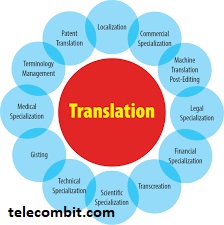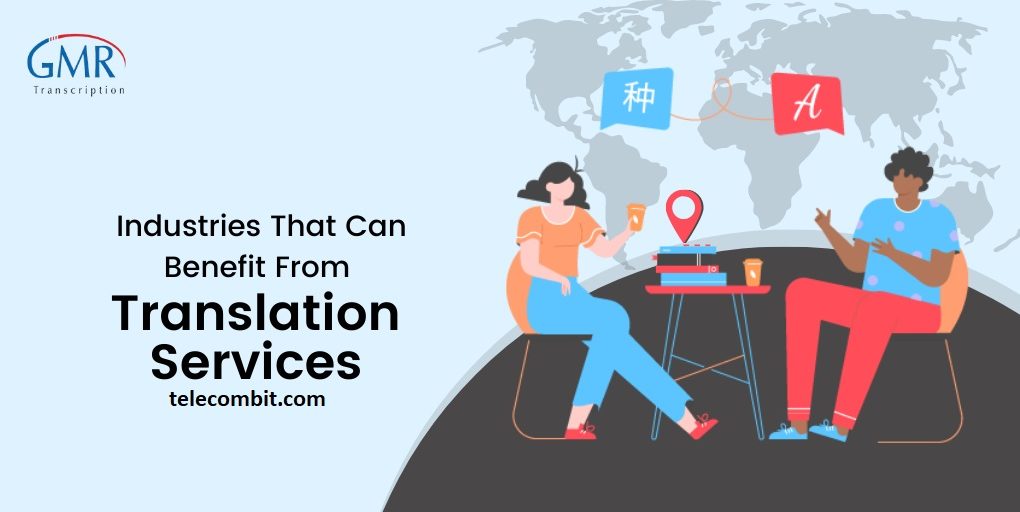Business Translation: Guide for Growing Internationally
Expanding a business internationally opens up new opportunities and markets. However, one significant challenge companies face is language barriers. To overcome this hurdle and successfully communicate with global audiences, businesses need to prioritize business translation. In this comprehensive guide, we will explore the importance of business translation, key considerations, best practices, and the benefits it brings to companies expanding internationally.

Understanding the Importance of Business Translation
Language acts as a bridge connecting businesses with their target audiences. Effective communication through accurate translation is crucial for building trust and fostering strong relationships. Here are some key reasons why business translation is essential.
Enhanced Market Penetration: Expanding globally requires reaching out to diverse markets. By translating your business materials, such as websites, marketing collateral, and product documentation, you can effectively engage with local customers. This enhances your market penetration and increases the chances of successful international growth.
Cultural Sensitivity and Localization: Business translation goes beyond mere word-for-word conversion. It involves understanding cultural nuances and adapting content to resonate with the target audience. Localization ensures that your messages are culturally sensitive, align with local customs, and avoid potential misinterpretations that may harm your brand reputation.
You can also learn about: Custom Packaging

Key Considerations for Business Translation
Choosing the Right Translation Partner: To ensure high-quality translations, selecting the right translation partner is crucial. Look for a provider with expertise in your industry and a network of professional translators who are native speakers of the target language. Additionally, consider their translation process, quality assurance measures, and their ability to handle your specific requirements.
Translating Website Content: Your website is often the first touchpoint for potential international customers. Translating website content accurately and optimizing it for search engines is vital. Use localized keywords, meta tags, and alt text for images to improve your website’s visibility and attract organic traffic.
Localizing Marketing Materials: When entering new markets, localized marketing materials play a vital role in capturing the attention of your target audience. Translating brochures, advertisements, and promotional content ensures that your messaging resonates with local customers, helping to drive brand awareness and sales.

Best Practices for Effective Business Translation
Maintain Consistent Branding: Consistency in branding is essential across all markets. Ensure that your translated content adheres to your brand guidelines, including tone of voice, visual elements, and key messaging. This consistency reinforces brand recognition and fosters trust among international customers.
Consider SEO and Keywords: To increase your visibility in search engine results, it’s crucial to consider SEO when translating online content. Conduct keyword research specific to each target market and incorporate them naturally within the translated text. This helps improve your search rankings and attract relevant traffic.
Professional Editing and Proofreading: To ensure accuracy and fluency in translated content, invest in professional editing and proofreading services. This step helps identify any linguistic errors, cultural inconsistencies, or ambiguous meanings that may have been missed during the translation process.

The Benefits of Business Translation
Increased Global Reach and Revenue: By breaking language barriers, business translation opens doors to new markets, expanding your reach and potential customer base. Increased market access translates to higher revenue opportunities and business growth.
Competitive Advantage: Companies that invest in business translation gain a competitive edge. By providing localized content and seamless communication, you differentiate yourself from competitors who may overlook the importance of language adaptation. This positions your business as customer-focused and reliable in the eyes of international clients.
Stronger Customer Relationships: Accurate business translation helps to build stronger customer relationships. When you communicate effectively in your customers’ native language, you demonstrate respect for their culture and show that you value their business. This fosters trust and loyalty, leading to long-term customer relationships and repeat business.
Improved Brand Reputation: Business translation plays a vital role in shaping your brand reputation internationally. When your translated content is accurate, culturally sensitive, and engaging, it enhances your brand perception. Positive experiences with your brand lead to word-of-mouth recommendations and a solid reputation among international customers.

Conclusion
Expanding your business internationally brings exciting opportunities, but language barriers can hinder your progress. By prioritizing business translation and following the best practices outlined in this guide, you can overcome these obstacles and ensure effective communication with your target audience. Investing in professional translation services, localizing your content, and maintaining consistent branding will help you grow your business globally, establish strong customer relationships, and enhance your brand reputation. Embrace the power of business translation and unlock the full potential of international growth.




